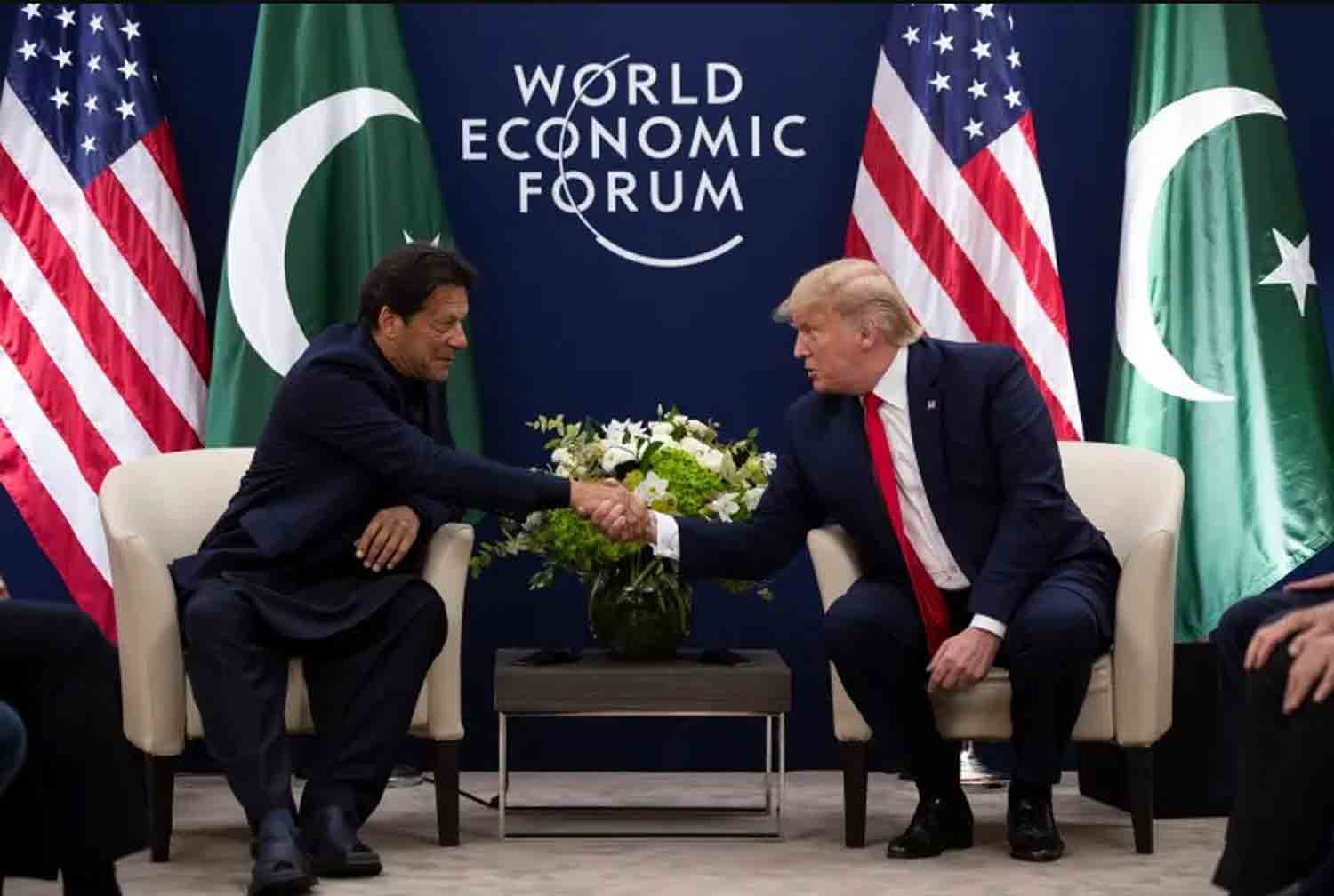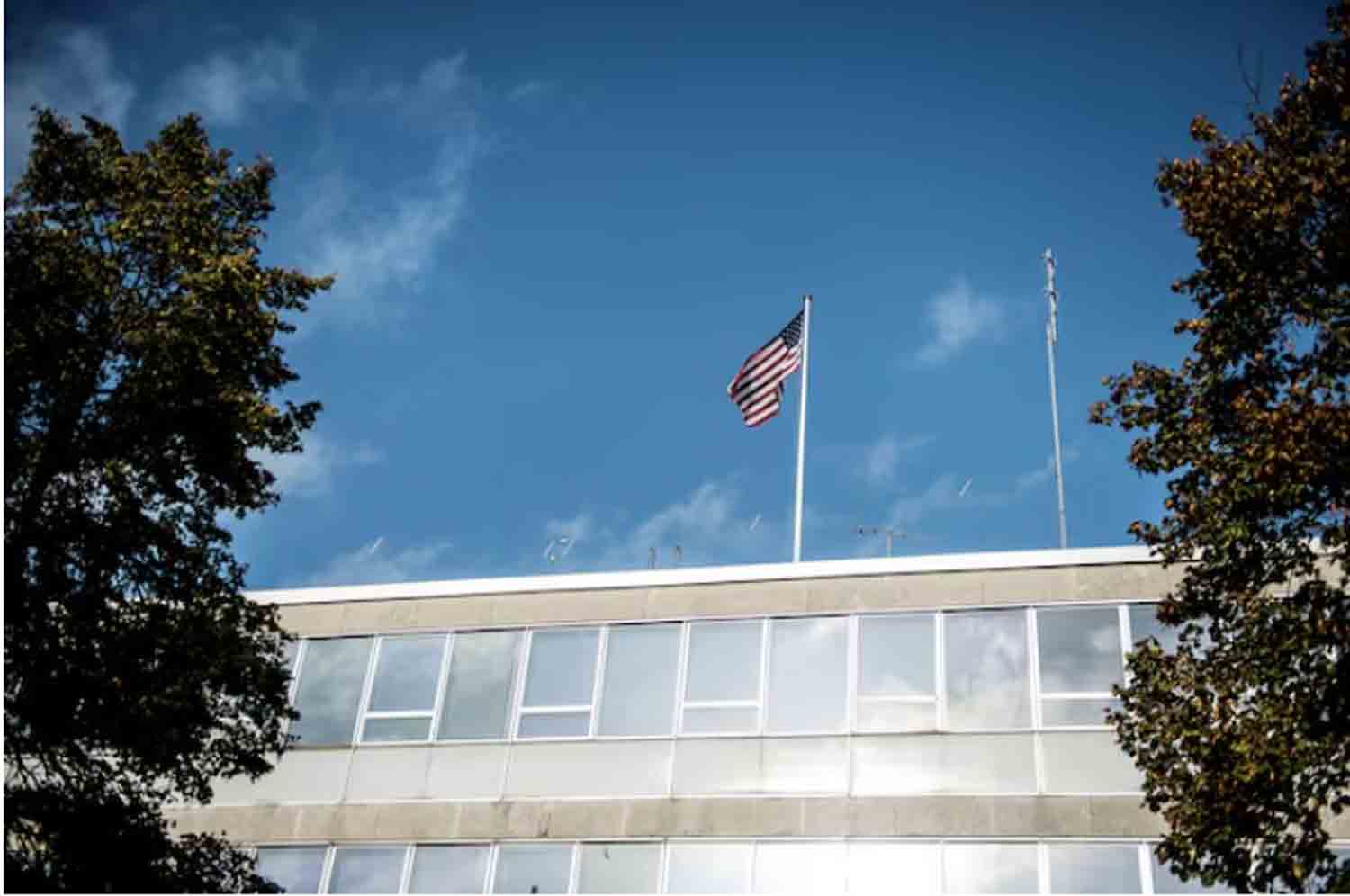Richard Grenell, a close associate of Donald Trump, the soon-to-be president of the United States, sparked widespread attention last November when he called for the release of Pakistan’s imprisoned former Prime Minister Imran Khan during protests in Islamabad.
In a subsequent tweet that has since been deleted, Grenell stated, “Watch Pakistan. Their Trump-like leader is in prison on false charges, and the people have been inspired by the US Red Wave. Stop the political prosecutions around the world!”
Both tweets attracted hundreds of thousands of views, and on December 16, just a day after Trump appointed him as a presidential envoy for special missions, Grenell reiterated his call for Khan’s release, which then exceeded 10 million views.
The message gained additional traction when Matt Gaetz, another Republican and a former Trump nominee for attorney general, also urged, “Free Imran Khan.”
These posts on X (formerly Twitter) were perceived as a significant endorsement for Khan’s Pakistan Tehreek-e-Insaf (PTI) party, which has been advocating for their leader’s release since August 2023.
However, many analysts expressed doubt that the interest shown by Trump’s allies would translate into substantial pressure on Pakistan to free the former prime minister. Some also highlighted the irony of the PTI, the nation’s most popular political party, seeking assistance from the US, especially after previously accusing Washington of being involved in Khan’s ousting less than three years ago.
Khan’s administration was ousted in April 2022 following a parliamentary no-confidence vote, concluding nearly four years in power.
He claimed that his removal was the result of a conspiracy orchestrated by the United States in collaboration with Pakistan’s influential military, prompting widespread protests from his supporters. Both the United States and the Pakistani military have categorically rejected these claims.
Since his ousting, Khan and his political party have encountered significant repression. He has been incarcerated since August 2023 on multiple charges and convictions. Additionally, his party’s emblem—a cricket bat—was prohibited from participating in Pakistan’s national elections last February, compelling its candidates to run as independents.
In the interim, relations between Pakistan and the United States seem to have slightly improved, particularly with the Biden administration’s appointment of Donald Blome as the US ambassador to Pakistan in May 2022, a position that had been unfilled since August 2018.
During the ongoing crackdown on Khan and the Pakistan Tehreek-e-Insaf (PTI), US officials have generally avoided making public statements, labeling the situation as an internal issue for Pakistan. Nevertheless, prominent Pakistani diaspora organizations in the US, predominantly supportive of Khan and the PTI, have actively lobbied American lawmakers for assistance on Khan’s behalf.
The vocal support from the Pakistani diaspora in the United States, especially concerning Imran Khan’s release, introduces additional complexities to the bilateral relationship, according to Hassan Abbas, a professor at the National Defense University in Washington, DC, in an interview with Al Jazeera.
Their advocacy resulted in a congressional hearing in March of last year focused on the “future of democracy” in Pakistan, driven by bipartisan requests for President Biden and Secretary of State Antony Blinken to examine the contentious elections scheduled for February 2024.
In October, over 60 Democratic lawmakers urged Biden to use U.S. leverage to facilitate Khan’s release. Shortly before the U.S. elections on November 5, Atif Khan, a senior leader of the PTI in the U.S., met with Lara Trump, the daughter-in-law of former President Trump, to address concerns regarding Khan’s imprisonment.
On January 22, just two days after the new Trump administration assumes office, another congressional hearing is anticipated on Capitol Hill concerning the protests in Islamabad last November, which resulted in the deaths of at least 12 PTI supporters. The PTI holds the authorities responsible for these fatalities.
Thus far, Islamabad has downplayed the importance of remarks from Trump associates. Last month, the Pakistani foreign office stated that the country aims for relations grounded in “mutual respect, mutual interest, and noninterference in each other’s domestic affairs.”
Mumtaz Zahra Baloch, the foreign office spokesperson, remarked during a media briefing, “We would prefer not to comment on statements made by individuals in their personal capacity.”
Rana Ihsaan Afzal, spokesperson for Prime Minister Shehbaz Sharif of Pakistan, stated that the government considers comments from individuals such as Grenell or Gaetz to be the views of “private American citizens.”
“The government does not engage with the remarks of individual citizens. We anticipate collaborating with the new administration, and a formal response will only be necessary if there is significant agitation at the governmental level,” Afzal conveyed to Al Jazeera.
Imran Khan as a savior?
Syed Mohammad Ali, a non-resident scholar at the Middle East Institute, characterized the PTI supporters’ appeal for US backing as somewhat ironic.
“Having previously advocated for US intervention to remove the PTI government, the PTI-supporting diaspora is now seeking the incoming US administration’s involvement in Pakistani political affairs,” Ali remarked to Al Jazeera.
“However, aside from this irony, it indicates that many overseas Pakistanis, distanced from their homeland, view Imran Khan as their savior.”
During his first term, Trump criticized Pakistan for being “nothing but lies and deceit,” but he later established a rapport with Khan during Khan’s tenure as Prime Minister from 2018 to 2022.
The initial meeting between the two occurred in Washington in July 2019, followed by a subsequent encounter in Davos in January 2020, during which Trump referred to Khan as his “very good friend.”
In contrast, the relationship between Khan and Biden has been notably strained. Khan has frequently criticized Biden for failing to reach out to him since he took office in November 2020.
Husain Haqqani, the former Pakistani ambassador to the US, recognized the effectiveness of the Pakistani diaspora in rallying support. “They have successfully encouraged members of both political parties to advocate for Khan’s release,” he stated.
Nonetheless, Haqqani, who is a senior fellow at the Hudson Institute, warned that Pakistan is not a significant focus in Trump’s foreign policy agenda.
“It is unrealistic for PTI supporters to believe they can exert influence over US officials in this manner. Aside from a few statements, there is no indication of a substantial shift in policy,” Haqqani remarked.
Ali, a lecturer at Johns Hopkins University, highlighted the disconnect between domestic political dynamics in the US and its foreign policy decisions.
“The Trump administration may pursue a more transactional strategy. While Pakistan has historically gained during Republican administrations, it currently does not play a crucial role in US strategic plans,” he noted.
Haqqani pointed out that US leverage typically involves sanctions and economic pressures, but with Pakistan no longer being a major recipient of aid, the avenues for influence are limited.
“Pakistan was once a primary recipient of US aid following 9/11. However, in recent years, that aid has significantly diminished. The US is primarily concerned with issues such as Pakistan’s nuclear and missile capabilities, its ties with China, and its alleged support for militant groups,” he explained.
“And Khan does not provide significant value in addressing any of these issues.”
Discover more from Defence Talks | Defense News Hub, Military Updates, Security Insights
Subscribe to get the latest posts sent to your email.





